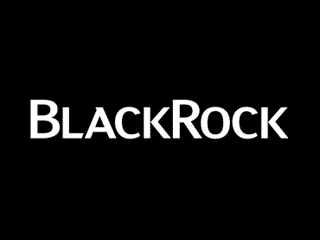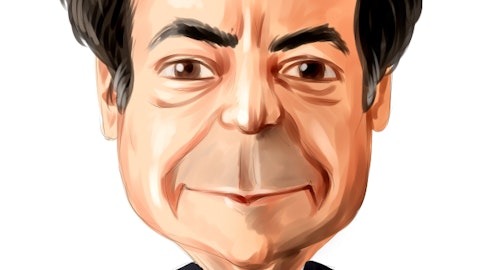BlackRock Second-Quarter Net Income Falls 11% On Assets (Bloomberg)
BlackRock Inc. (BLK), the world’s biggest money manager, said second-quarter profit fell 11 percent as slumping markets worldwide eroded fees for managing client assets. Net income decreased to $554 million, or $3.08 a share, from $619 million, or $3.21, a year earlier, the New York-based company said today in a statement. BlackRock’s net income compared with the $3 a share average estimate of seven analysts surveyed by Bloomberg.
Hedge Fund Consultant Wesley Wang Admits to Passing Tips (BusinessWeek)
Wesley Wang, a hedge fund consultant who worked for Trellus Management and Sigma Capital, a division of SAC Capital Advisors LP, admitted that he passed inside information about Cisco Systems Inc. (CSCO) (CSCO), Polycom Inc. (PLCM) (PLCM) and Marvell Technology Group Ltd. (MRVL) (MRVL) Wang, 39, pleaded guilty to two counts of conspiracy to commit securities fraud in Manhattan federal court, according to a transcript of the July 13 hearing. He’s set to testify against Doug Whitman, the hedge fund founder indicted in February on charges of insider trading, at a trial slated to begin July 30, according to a filing by prosecutors in Whitman’s case.
Japan’s highest-profile hedge fund manager dethroned by insider trading probe (IndiaTimes)
Edward Brogan was Japan’s highest-profile hedge fund manager until he suddenly dropped out of view this month. Dubbed the “King of Tokyo” by traders, the 53-year-old American seemed to have it all: wealth, professional acclaim and status as a patron of contemporary art. In his best year, Brogan had managed over one billion dollars in his flagship Whitney Japan Fund, although much of that has been withdrawn. Now Brogan is at the center of a probe of insider trading. His Tokyo-based firm Japan Advisory has been closed since regulators imposed a fine and revoked its license at the end of June.
Traxis to Liquidate Biggs’s Hedge Fund Into Another Pool (BusinessWeek)
Traxis Partners LP, the $1.2 billion hedge fund started by Barton Biggs, told clients it will liquidate a vehicle he managed and transfer the assets to another pool following his death over the weekend. The Traxis Global Equity Macro Fund will be cashed out and the assets will be invested on Aug. 1 in the Traxis Fund, managed by partners Amer Bisat, Andy Skov and Krishen Sud, the Greenwich, Connecticut-based firm told clients today in a letter, a copy of which was obtained by Bloomberg News. Investors will have the option of withdrawing their money at the end of this month.
4 reasons the hedge fund industry is dead (MarketWatch)
The era of multi-billion dollar hedge funds, with their “2 and 20” fee structures, high portfolio, and employee turnover, looking no farther ahead than this year’s bonus, is over. The Economist came out with a piece last week talking about the struggles of the hedge fund industry in the first half of 2012, which fared no better in 2011. Read Economist’s “Mastered by the universe.” There are four structural reasons why the industry as we know it is dead.
Stamford man to drop hedge fund for mortgage business (CTPost)
Ralph DellaCamera Jr. has been called a vulture investor who understands how to use a crisis to turn a profit, but something happened on the way to the feast on the carcass of the housing market that has this veteran money manager and Stamford resident moving out of the hedge fund business to focus on mortgage lending. “We are in the process of closing down the hedge fund,” said DellaCamera, who has worked on Wall Street since the 1970s. “It’s mostly my money.”
Hedge Fund Manager Denies CREW Allegations (Finalternatives)
A hedge fund manager accused by a legal watchdog group of stock price manipulation denies any wrongdoing. The Citizens for Responsibility and Ethics in Washington accuse Martin Shkreli of MSMB Capital Management of having “inserted himself” into Food and Drug Administration approval processes for drugs proposed by companies he was shorting. CREW also alleges he spread “unfounded and inaccurate rumors about drugs owned by companies he was shorting.” The group wants Preet Bharara, the U.S. attorney in Manhattan, to probe the hedge fund manager.
HFRX Global Hedge Fund Index up +0.56% in mid-July (+1.79% YTD) (Opalesque)
Global equity markets posted mixed performance in the first half of July, with intense scrutiny of bank LIBOR submissions and weak US employment figures complementing continued investor concerns regarding European sovereign debt crisis. Global equity markets generally posted declines across US, Europe and Asia, with declines in Japan, Spain and Italy only partially offset by gains in Germany and the U.K.; equities were also mixed by sector, with gains in Energy offset by declines in Technology. Yields on newly issued US Treasury securities continued to set record lows, with 10 and 30 year yields falling below 1.50% and 2.60%, respectively. The US dollar strengthened against the Euro and Swiss Franc through mid-July, while easing modestly against the Japanese Yen. Commodities generally posted gains as the US drought continued, with strong gains in Corn and Wheat complemented by gains in Oil and Natural Gas. Hedge funds posted gains through mid-July, with the HFRX Global Hedge Fund Index gaining +0.56%, with positive contributions across most main strategy areas. The HFRX Market Directional Index posted a gain of +1.46% with additional contribution from Macro strategies.
Hugh Hendry: I’m Not As Full Of Myself In Real Life As I Appear On TV (BusinessInsider)
U.K. hedge fund manager Hugh Hendry, a partner and chief investment officer Eclectica Asset Management, has a reputation for his spirited television interviews and YouTube videos. Remember when Hendry duked it out with Joseph Stiglitz on BBC’s Newsnight back in 2010? Of course you do.
Capula Said to Hire Former BofA Trader for Distressed Debt Fund (BusinessWeek)
Capula Investment Management LLP, a $13 billion hedge fund firm, hired a former Bank of America Corp. (BAC) executive to start a fund to trade distressed assets in Europe, adding to the number of firms betting that the region’s sovereign debt crisis will spur a fire-sale of bonds and loans. Steven Zander joined Capula in June as a senior portfolio manager to oversee the London-based company’s first fund that will solely focus on European distressed debt, according to a person briefed on his hiring who declined to be identified because the firm is private.
Ex bares sole in $1M footwear fight (NYPost)
She had a fever for pricey footwear. A pretty pro poker player battling her ex-hubby over 1,200 pairs of designer shoes she’d stashed in their posh Fifth Avenue pad called her inability to say no to high heels a “sickness” she couldn’t cure. …Her ex, hedge-fund titan Daniel Shak, had filed a lawsuit looking for a payday from the sale of the shoes, but abruptly dropped the legal action yesterday after several hours of testimony. The stunning brunette — who has an image of a Christian Louboutin stiletto tattooed on her pelvic bone — said Shak would even give her the brushoff when she came looking for love.
Saliba Portfolio Management Lists on AlphaMetrix (MarketWatch)
AlphaMetrix, the leading secure online marketplace for private investments, today announced that Saliba Portfolio Management (SPM) has listed its Dynamic Hedge fund as a TransparentFund. As a TransparentFund, Dynamic Hedge is now visible to the AlphaMetrix network. Dynamic Hedge will retain its existing structure and service providers while offering investors in-depth risk monitoring, state-of-the-art reporting, customized transparency and a thorough background investigation via AlphaMetrix.
Wife Of Convicted Ex-Credit Suisse Broker Seeks Assets (Bloomberg)
HSBC Holdings Plc (HSBA)’s head of group compliance, David Bagley, told a Senate hearing he will step down amid charges the bank gave terrorists, drug cartels and criminals access to the U.S. financial system by failing to guard against money laundering. Bagley was among at least six HSBC executives who testified before the Senate’s Permanent Subcommittee on Investigations yesterday after the panel released a 335-page report describing a decade of compliance failures by Europe’s biggest bank. London-based HSBC enabled drug lords to launder money in Mexico, did business with firms linked to terrorism and concealed transactions that bypassed U.S. sanctions against Iran, Senate investigators said in the report.
Greg Lippmann of the Big Short, Raking it in at LibreMax Hedge Fund (ValueWalk)
Greg Lippmann became an overnight legend when he was profiled in Michael Lewis’ best-seller, The Big Short: Inside the Doomsday Machine. Lippman was a former trader at Deutsche Bank AG (NYSE:DB). Eugene Xu is another Deutsche Bank trader, who is described in the book as ”Lippmann’s Chinese quant.” Together, they shorted subprime collaterlized debt obligations and other instruments, and in the process made a fortune. Deutsche Bank made a total of $5 billion from the trades as well. After their career at Deutsch Bank AG, Xu and Lippmann co-founded a hedge fund, LibreMax Capital, LLC. The hedge fund was launched on October 1st, 2010. LibreMax Capital, LLC uses fundamental analysis to invest in various credit products, including; collaterlized debt obligations (CDOs), non agency residential mortgage backed securities (RMBS), collaterlized loan obligations (CLOs), asset backed securities, and manufactured housing.
Quant Uncovers Deadly Trade, Energy Desk Rides Heat Wave: Books (Bloomberg)
Take one Manhattan hedge-fund boss who exults in Cristal-soaked bacchanalias. Add a disillusioned quant who made billions for the fund before turning 30. Throw in a kickboxing U.S. Treasury agent in Hong Kong who tracks down financial terrorists by day and plays Texas Hold ’Em in a slinky black dress by night. …As the story gets under way, it’s Monday, Oct. 17, 2011. Drew Havens, a boy scout of a quant who sips diet cola amid revelers snorting coke, is preparing to quit the Rising hedge after pocketing his bonus.
Man, FRM Marriage Official (Finalternatives)
The Man Group has closed its acquisition of US$8 billion fund of hedge funds FRM Holdings. The consummation of the US$142.8 million deal was announced yesterday. It makes Man, already the world’s largest hedge fund firm by some measures, the largest fund of hedge funds manager outside of the U.S. The combined Man-FRM fund of funds business accounts for US$19 billion in assets.
Tyrus Settles Brazilian Fraud Case (Finalternatives)
It didn’t take long for Tyrus Capital to get in trouble, but it has taken the hedge fund until now to resolve it. The Monaco-based firm, the largest European hedge fund launch of 2009, has agreed to pay almost US$5 million to settle market fraud allegations in Brazil. The 10 million real settlement closes the Comissão de Valores Mobiliáros’ probe into a “fraudulent operation” at Tyrus.
Fund launches help boost alternative UCITS assets to EUR 129bn, says Alix Capital (Opalesque)
UCITS hedge funds AUM increased by +7.5% in Q2 2012 contributing to an increase of 18.3% for the last 12 months …The latest quarterly research on the UCITS hedge funds industry published by Alix Capital, the Geneva-based provider of the UCITS Alternatives Index (UAI) family of indices, reveals a 7.5% increase in the total assets managed by UCITS hedge funds to EUR 129 billion, an increase of 18.3% over the last 12 months. The report provides in-depth information on 776 single manager alternative UCITS funds and 78 alternative UCITS fund of funds, covering strategy breakdown, fund and advisor location, liquidity, asset flows, assets under management (AUM) and performance.
United States: How Hedge Fund Managers Can Use Arbitration Provisions To Prevent Investor Class Action Lawsuits (Mondaq)
As can be expected during an economic downturn, hedge fund managers were not impervious to investor dissatisfaction following the 2008 financial crisis. In some instances, this dissatisfaction resulted in litigation. A recent trend is for investors to threaten to bring their claims as a class action, which not only carries the possibility of exponentially increasing potential damages, but also harming the reputation of the manager and its ability to raise capital in the future. Nearly all fund governing documents contain arbitration provisions that require any and all claims relating to investment accounts to be arbitrated in private, confidential proceedings. However, most arbitration provisions contained in fund governing documents are silent on the availability of class arbitration, and this issue is significant for hedge fund managers to consider both retrospectively and prospectively in drafting their governing documents.
Hedge funds take on defensive positions (Opalesque)
Macro hedge funds are taking on defensive positions according to a new report from Bank of America Merrill Lynch Global Research. Macros are maintaining their preference for large-cap,and adding to their shorts in the S&P 500 and NASDAQ 100, partially covered commodities and 10-year Treasuries. According to Mary Ann Bartels, lead hedge fund analyst for Bank of America Merrill Lynch, Market Neutral funds bought market exposure to 4% from 3% net long. Equity Long/Short maintained market exposure at 23% net long, well below the 35-40% benchmark level. The investable hedge fund composite index was up 0.29% last week (as of July 11), compared to down 2.37% for the S&P 500. CTAs and Macros had the best week, Equity Long/Short performed the worst. According to BofA’s models, Equity Long/Short funds have reduced their large cap and quality tilt.
Improve risk management to target fees (FinancialStandard)
The upcoming September AIMA Australia Hedge Fund Forum will hear how cautious investors post-GFC are trying to better understand their risk profiles so they can use this knowledge to identify which active investment managers are adding the most value. Paul O’Connor, director fund services S&P Capital IQ, who will be one of the forum’s keynote speakers, said this will enable them to more effectively mix passive beta with active alpha hunting investment strategies.
Pensions diversify away from equities (BenefitsCanada)
Towers Watson recently released its annual Global Alternatives Survey in conjunction with the Financial Times of London, England. The survey, in its ninth year, gathered information on alternatives products offered to investors, including pension funds, sovereign wealth funds (SWFs) and insurance companies, as at the end of 2011. For purposes of the survey, alternatives included private equity and hedge funds (both direct and fund of funds), real estate, infrastructure and commodities.
Cheap Critical Metal Offers in Mongolia: James Passin (ResourceInvestor)
Nervous investors are waiting on the sidelines, but the biggest risk is to miss out on the great bull markets where fortunes are made: So says James Passin, hedge fund manager with Firebird Management. Passin likes to get the jump on mainstream analysts on emerging bullish plays, and right now he has his sights set on Mongolia. In this Critical Metals Report interview, discover which critical elements are being unearthed in the developing country and how technology is playing a crucial role. The Critical Metals Report: James, in your last interview with The Critical Metals Report in February, you believed that there would be a large number of mergers and acquisitions (M&A) this year. We have seen some activity, but nothing unprecedented. Is that investment thesis still intact?
Asset management industry in Monaco is vibrant and growing – Opalesque Monaco Roundtable (Opalesque)
Monaco is a very vibrant place to do business for hedge funds, declared Anthony Torriani, founder and principal of $2.5bn multi-asset hedge fund manager Monaco Asset Management, during the inaugural Opalesque Monaco Roundtable which took place in Monaco last month. The Roundtable and was sponsored by Salus Alpha and Eurex.
Cheyne Enlists Imagine’s Risk Management Software for UCITS Fund (WatersTechnology)
UK hedge fund manager will use Imagine’s software to automate its historic and parametric VaR calculations. Cheyne Capital, a London-based hdge fund manager with approximately $6 billion under management, has enlisted New York-headquartered Imagine Software’s cloud-based profit and loss (P&L) and risk management tool for its new Global Credit Fund. Cheyne’s Undertakings for Collective Investment in Transferable Securities (UCITS)-compliant fund will use the software to manage its risk, including automating its historic and parametric Value-at-Risk (VaR) calculations.
Palo Alto Networks Seeking Twice Price Of Peers In IPO (Bloomberg)
Palo Alto Networks Inc. is betting its growth prospects will justify a valuation that’s more than double the multiple for its rivals as it leads the busiest week for U.S. initial public offerings since April. The provider of Internet-firewall technology plans to raise as much as $248 million in a share sale scheduled for July 19. The midpoint of the price range values Santa Clara, California- based Palo Alto at about 12 times sales in the 12 months through April, compared with an average of 5.7 times for competitors, data compiled by Bloomberg show.
Beazer Buys Time For Rebound In U.S. Housing: Corporate Finance (Bloomberg)
Beazer Homes USA Inc. (BZH), the builder that’s piled up $1.8 billion of losses since the collapse of the U.S. housing market, is buying time until the U.S. economy recovers by replenishing its capital with stock and bond sales. Beazer sold $300 million of secured debt, raised about $160 million selling stock and hybrid securities and said it would buy back $250 million of bonds last week. The Atlanta-based company’s $300 million of 9.125 percent notes due June 2018 have returned 19 percent in the past six weeks and now trade at more than 97 cents on the dollar, according to data compiled by Bloomberg.
ThinkStrategy’s Kapur Indicted For Securities Fraud (Bloomberg)
ThinkStrategy Capital Management LLC’s Chetan Kapur was accused by the U.S. of deceiving investors into buying shares in his hedge funds in a scheme that lasted from 2002 to 2010. Kapur, ThinkStrategy’s sole managing director, was charged with securities fraud, investment adviser fraud and wire fraud in an indictment unsealed today by prosecutors in the office of Manhattan U.S. Attorney Preet Bharara.
Islamic forestry fund aims to tap crossover appeal (Reuters)
Luxembourg-based Sustainable Capital has announced the launch of a sharia-compliant forestry fund, part of a trend toward crossover products that appeal to Islamic investors as well as those interested in green investment. The firm aims to raise $100 million in the open-ended fund, which starts its offering period next Monday and will invest in the agricultural, biomass and forestry sectors.
Why A Diverse Portfolio Of Hedge Funds Is A Stupid Idea (BusinessInsider)
Modern financial theory holds that a diversified portfolio of securities is the most efficient way for an investor to access an asset class. Idiosyncratic risk, the risk associated with an individual stock say, can be diversified away and therefore theory holds that investors don’t achieve any additional return for holding concentrated portfolios of their favorite stocks. It’s an idea that makes a lot of intuitive sense. Consequently, you can invest in equities and possess no particular stock-picking skill by using an index fund. Hundreds of billions of dollars are invested passively in this way. Based on many decades of performance from public equities (although admittedly the last decade was no walk in the park) this is a sound strategy.
System trading, the only rational way to invest? (Opalesque)
“In spite of recent failures, governments, large corporations, and the majority of the world’s capital are managed with methods based on fundamental analysis and neoclassical economics. It is hoped that the proponents of this approach will someday go the way of astrologers and witch doctors.” That is a quote from a new book, Rational Investment: Why System Trading is the Only Rational Way to Invest, written by Mark I. Lee. Lee is the Founder and Chief Investment Officer of Rational Investment Research, a niche CTA based in Singapore. Lee has been involved in the financial industry for more than 15 years, primarily as a prop trader. He recently left this role to start his own firm trading client funds using system trading strategies he developed over his career.
Short Selling Brothers Agree to Pay $14.5 Million to Settle SEC Charges (SEC)
The Securities and Exchange Commission today announced that two options traders who the agency charged earlier this year with short selling violations have agreed to pay more than $14.5 million to settle the case against them. An SEC investigation found that brothers Jeffrey A. Wolfson and Robert A. Wolfson engaged in naked short selling by failing to locate shares involved in short sales and failing to close out the resulting failures to deliver. SEC rules require short sellers to locate shares to borrow before selling them short, and they must purchase securities to close out their failures to deliver by a specified date. The Wolfsons made approximately $9.5 million in illegal profits from their naked short selling transactions.
Jamie Dimon Just Told Us Not To Own JPMC (or most any bank) (Forbes)
Most investors shouldn’t be. Given demands of work and family, there is almost no time to study companies, markets and select investments. So smaller investors rely on 3rd parties, who rarely perform better than the most common indices, such as the S&P 500 or Dow Jones Industrial Average. For that reason, few small investors make more than 5-10% per year on their money, and since 2000 many would beg for that much return! Most investors would make more money with their available time by studying prices on the web and simply buying bargains where they could save more than 10% on their purchase.
Are Hedge Funds and Finance Bad for Growth? (InstitutionalInvestor)
Many hedge funds have enough trouble these days explaining lackluster results to their investors. But a new study takes a broader swipe at the industry, claiming that hedge funds — and a generally oversized financial sector — are bad for growth. A growing financial sector can fuel productivity growth in developing economies, but beyond a certain point — “one that many advanced economies passed long ago” — more finance tends to reduce growth, says the research paper, entitled “Reassessing the impact of finance on growth.”
Lloyd LLoves the 1% (NYPost)
Goldman Sachs is struggling to figure out what it wants to be when it grows up. Cut off from its usual money spigots — revenue in each of its business units fell in the first half of 2012 — the Wall Street firm is searching for new ways to make a buck in the stagnant US economy. CEO Lloyd Blankfein believes one path to possible prosperity is an expansion of Goldman’s business of lending money to the 1 percent. Some critics believed that the bank’s new push to lend money to wealthy clients and to gain $100 billion in deposits from the same folks are evidence that the vaunted franchise is struggling to find its way as it’s being buffeted by the stiffest economic headwinds since it was formed 144 years ago.






